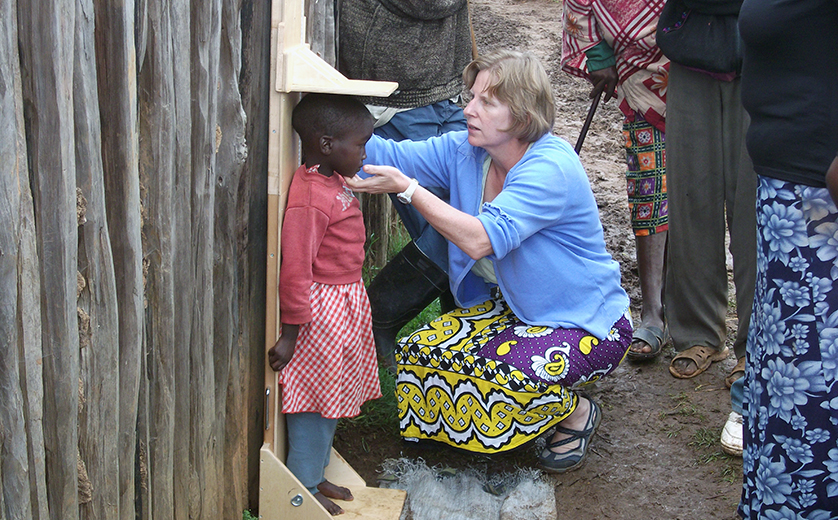Professor Carolyn Lesorogol began her work in Kenya 30 years ago, when she studied there as an undergraduate. At the time, the nation was recovering from a drought. “I was very impressed by people’s ability to survive with relatively little assistance,” she recalled. Lesorogol realized that the strength of the community was key, and she’s been working to build on that knowledge and improve the lives of Kenyans ever since.
Her primary projects have undertaken ethnographic research about processes of land privatization and the effects of land-use choices on livelihoods and social relations, including using computer models to show over time how those choices affect food, income, households and the environment. A second focus has been working with a community association to introduce highly productive dairy goats to improve food security, income and nutrition. The project started with 30 households and Lesorogol hopes to expand the program, which translates into better futures, particularly for children.
“If you have more food and income, you can meet other needs such as education and health,” noted Lesorogol, who in addition to being a professor, is associate dean for global strategy and programs. In that role, she coordinates international practica and field-based courses for graduate students, most recently in Berlin and Tanzania.
“The Brown School has a mission of supporting vulnerable populations around the world,” she says. “We aim to use research results to inform policies and practices that improve the lives of all people.”
